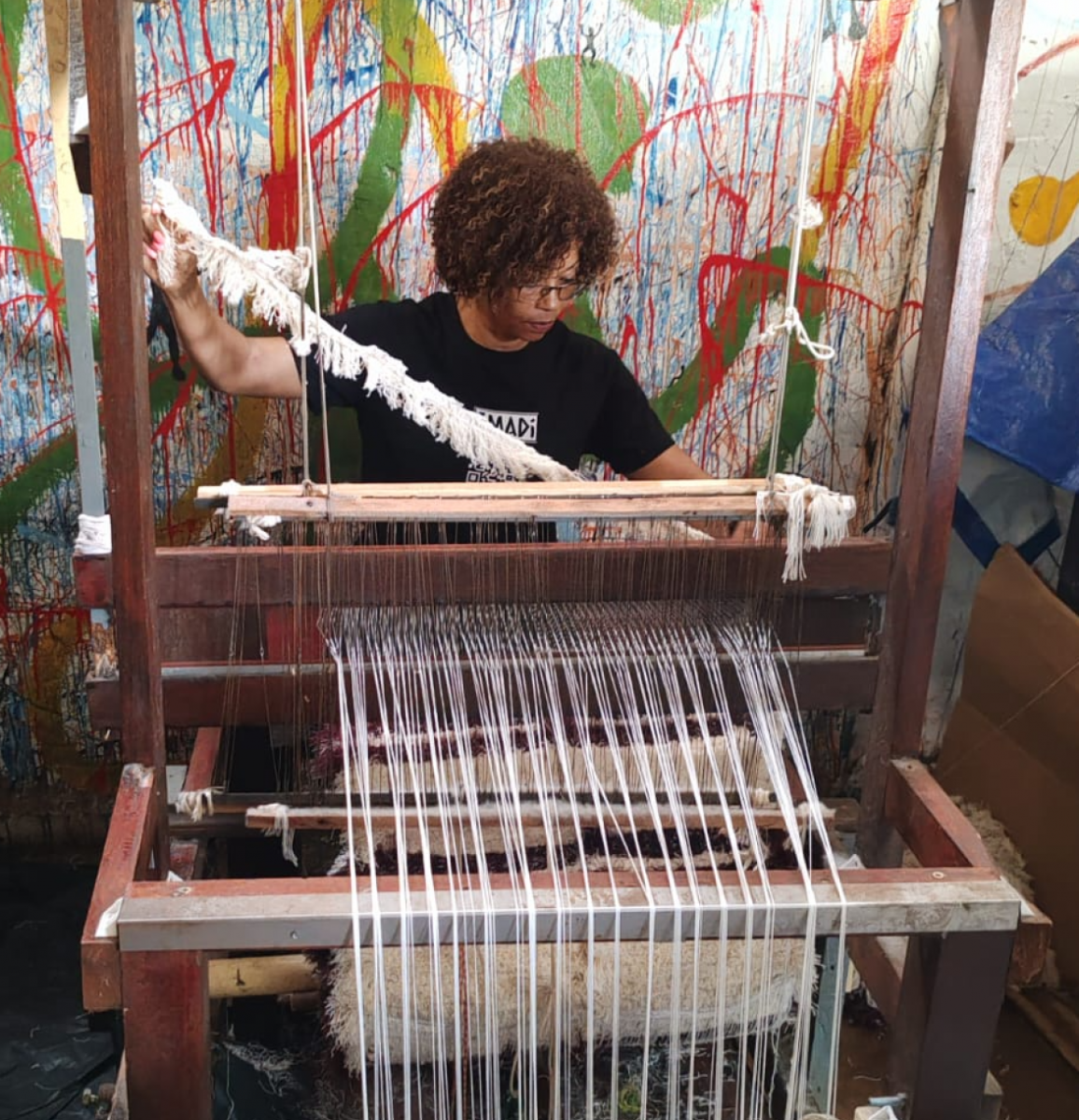In a world grappling with environmental challenges, one South African enterprise is making a difference by blending sustainability with tradition.

Imadi, a hand-weaving enterprise based in Johannesburg’s Observatory, is turning textile salvage into eco-friendly rugs and home decor, preserving an age-old craft while tackling industrial waste.
Established in 2023, Imadi’s journey began much earlier in 2018, when its founders started crafting handmade rugs and mats. The enterprise sources its raw materials from textile mills, purchasing what the industry considers waste and turning it into beautiful, high-quality products.
“What we purchase from the textile industry is what they deem waste. They sell it to us, and we turn that into rugs,” said Imadi director, Kate Motha.
“Not only do we preserve the tradition of hand-weaving, but we also address the serious issue of environmental waste by upcycling.”
Unlike mass-produced rugs, Imadi’s creations are 100% handmade, using wooden looms that require no electricity. This ensures that the process is not only eco-friendly but also contributes to sustainable job creation. The enterprise currently employs four permanent staff members and six temporary workers
Despite its innovative approach, Imadi faces significant hurdles as a small textile business. One of the biggest challenges is gaining exposure and securing retail partnerships.
“Most retailers look for businesses that already have a footprint in the sector,” said Motha.
“If you come in as a small, unknown business, you don’t get many opportunities to showcase or even sell your products. Though our product is unique – 100% cotton, biodegradable, and entirely handmade – the market tends to favour established brands.”
Access to funding is another major obstacle. While financial institutions and investors often claim to support start-ups, Motha believes the reality is different.
“When you require funding for expansion, you are expected to already be established. Many funding programmes require a turnover of at least R3 million before considering investment,” Motha laments.
“How are small businesses supposed to grow if they’re not given the opportunity to start? Small businesses are key to employment creation. If financial institutions and funders invested in us, they would also be helping to reduce unemployment.”
Beyond sustainability, Imadi sees its craft as a means of empowerment. Since the hand-weaving process does not rely on electricity, it is a skill that can be taught and applied in rural communities.
Imadi’s rugs and mats are currently sold through its online store, at flea markets, and platforms such as the Proudly South African Summit, which was held in March.
Motha said the business continues to seek more avenues to expand its reach.
For more information about Imadi rugs visit imadistore.co.za

 Facebook
Facebook Twitter
Twitter WhatsApp
WhatsApp